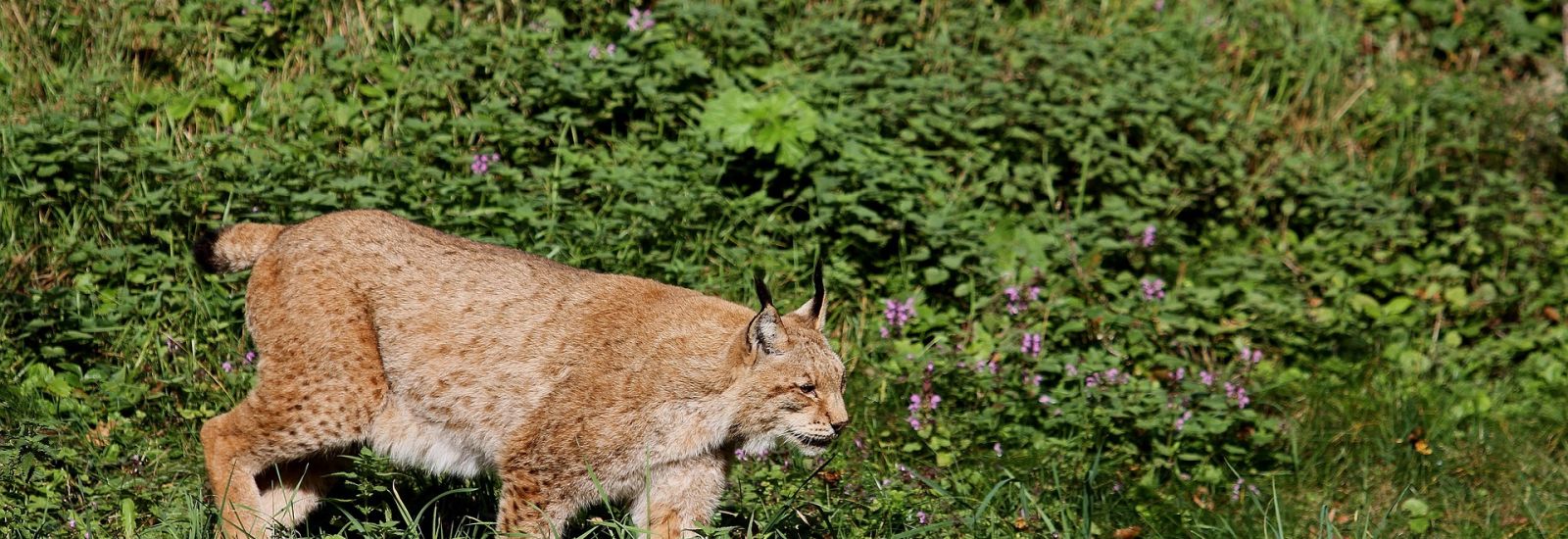
Lessons Learned: Improving understanding of public attitudes to lynx reintroduction in Scotland
The possibility of reintroducing the Eurasian lynx to Scotland is controversial. Researchers have convened a network of environmental policy experts to improve policymakers’ understanding of the full range of public opinion on the issue.
Opinions about the possible reintroduction of the Eurasian lynx to Scotland are extremely polarised. Some people argue that reintroducing this large wild cat, which disappeared from Scotland hundreds of years ago, could help support biodiversity and promote ecosystem recovery. But the proposals tap into public fears about large carnivores, and long-standing social divisions over land use and wildlife management.
Previously, objective information about public attitudes was hard to come by: those with the loudest voices tended to dominate the debate. A 2021 Strategic Priorities Fund award allowed us to convene a network of environmental policy actors to explore how to improve our own, each other’s, and policymakers’ understanding.
We wanted to work out what information was needed about the beliefs, attitudes, and policy preferences of the Scottish population to usefully inform the debate.
We wanted to work out what information was needed about the beliefs, attitudes, and policy preferences of the Scottish population to usefully inform the debate. Our plan was then to design a questionnaire to capture this information, and help ministers and officials in the Scottish government consider any future application for reintroduction.
Reintroduction is so contested that even some major environmental organisations are reluctant to speak about it, so ensuring the network of environmental policy actors was a safe space for discussion was crucial.
Our core research team, led by Dr. Darragh Hare, a research fellow in WildCRU and member of the Oxford Policy Engagement Network, prepared an initial draft questionnaire and refined it in discussion with the network, through group meetings and inviting confidential feedback over a 12-week period. Both approaches helped to build trust and confidence in the network, and we were delighted at the way that participants openly and respectfully exchanged their ideas. Several members of the group even helped review our plans for a follow-up study digging more deeply into public attitudes about which possible reintroduction scenarios would be more or less socially acceptable.
Our results indicate that most people living in Scotland are moderately in favour of lynx reintroduction, but are concerned that lynx would cause problems for livestock farmers. Surprisingly, we found only small differences between rural and urban perspectives – strong evidence against the common claim that urban people support lynx reintroduction but rural people do not.
The high level of engagement was also demonstrated by members’ willingness to stay involved and follow up on the questionnaire results, even after the end of the project. The relationship with lead partner, Trees for Life, became particularly strong, and they have become a strategic collaborator for ongoing research and policy engagement work.
Convening and facilitating a network proved extremely effective in considering public attitudes to lynx reintroduction and, we believe, could serve as an excellent model for other contested environmental policies. Our example found that assembling a group of policy actors, and providing a forum for them to co-produce research in which they can speak freely and build trust was extremely effective and we believe the process could be replicated for other policy-relevant research. In terms of academic output we intend to publish two scientific articles on the initial and follow up studies and will communicate the findings to organisations across sectors that are active in the ongoing discourse.
David Macdonald is Professor of Wildlife Conservation in the Department of Biology, Founding Director of the Wildlife Conservation Research Unit (WildCRU), and a member of the Oxford Policy Engagement Network.